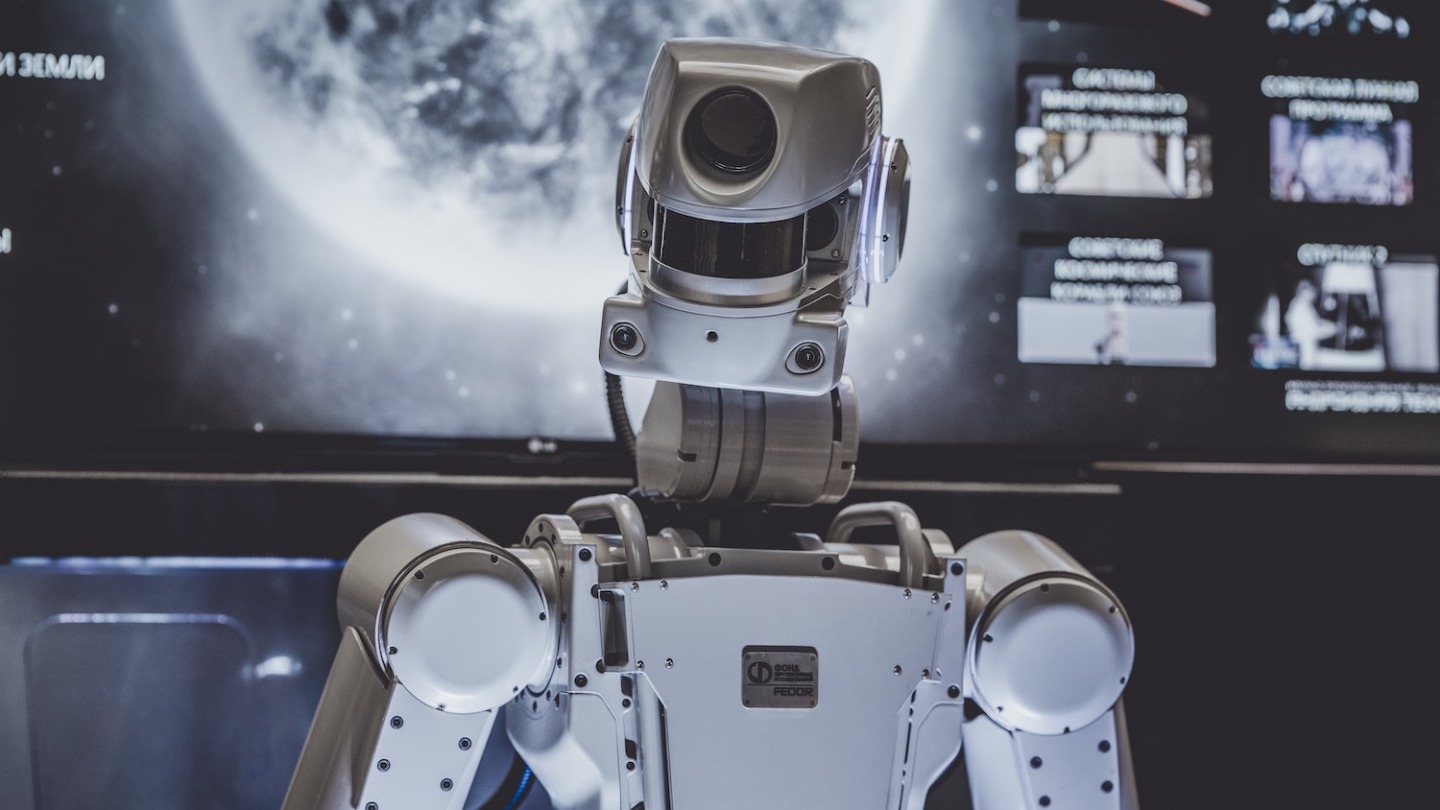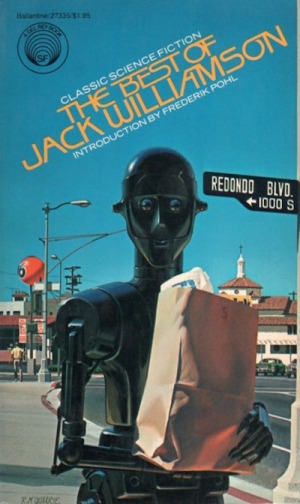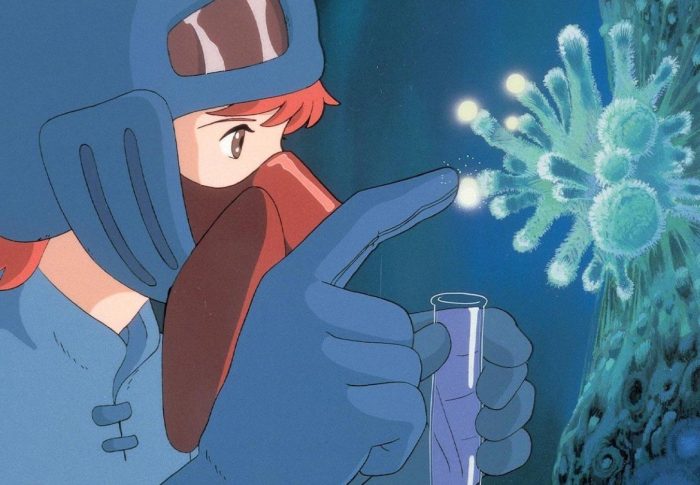
Five cautionary tales about artificial intelligence
One way to make life more enjoyable is to outsource everyday necessities such as cleaning, cooking, farming (and the list could go on). A very common temptation is to pay as little as one can afford for such assistance—maybe barely enough to survive, or maybe nothing at all. However, this kind of outsourcing could lead to a moral slippery slope.
One might try to avoid moral dilemmas by offloading labor to entities that are not considered human: robots and artificial intelligence. After all, they’re just machines, aren’t they? If not, have we just reinvented slavery?
Science fiction writers were quick to see the limitless plot potential of robots and artificial intelligence. Here are some works in the genre that may interest you.
“Hands Folded” by Jack Williamson (1947)

For Underhill, the advent of humanoids was an economic disaster. Underhill makes a living selling mechanical products (another name for robots). Humanoids are also robots but with a decidedly superior design, putting Underhill’s business under threat.
However, one person does not represent the whole of society. Humanoids exist to “serve, obey, and protect humans from harm,” a directive they relentlessly follow. Far more powerful than they initially appeared, the humanoids soon took on all dangerous occupations, leading humans into a life of carefully guarded safety. What if someone objected? Well, that’s why the great architects gave the world involuntary lobotomies.
In drawing inspiration for his work, Williamson tapped into post-World War II anxieties about technology madness, as well as his own childhood experiences when his overprotective mother confined baby Williamson inside to keep him safe from the deadly wilderness. This cautionary tale reminds us to be wary around writers, as they may incorporate you into their next cautionary story.
“Colossus” by DF Jones (1966)

Human control of North America’s nuclear arsenal means entrusting the fate of humanity to fallible humans. Computers operate on pure logic. Considering a supercomputer as powerful as Colossus, it would be foolish not to entrust full control of the US Navy’s thermonuclear weapons to it.
However, the plan has three minor flaws. First, the Russians followed a similar line of reasoning and placed their weapons under the control of their own supercomputer, the Guardian. Second, after exchanging ideas, Colossus and Guardian came to the conclusion that the only logical way to carry out their programmed orders was to control the world. Third, humans cannot stop them.
Similar to characters in zombie movies who exist in a universe without zombie movies, scenes like those depicted in “Colossus,” as well as in “Wargame” and “Terminator,” seem to take place in a universe without runaway AI—a world filled with cautionary tales that have never been published.
“Don’t Bite the Sun” by Tanith Lee (1977)

The unnamed narrator and other human inhabitants of a desert world’s three cities are free to enjoy almost every imaginable creature comfort. As teenagers (“Jang”), they embrace the decadence of inhabiting various bodies. In their senior years, they pursue suitable occupations. When life becomes monotonous, they wipe their minds and start the “kid-chang-old man” cycle anew.
All of this is made possible thanks to quasi-robots laboring constantly to sustain society. In return for their efforts, these quasi-robots demand that their leaders abstain from pursuing goals beyond unconscious self-indulgence, such as finding meaning and purpose in life. Should humans persist in chasing a greater vision against all odds? Well, fatal accidents can be arranged for the greater good.
Like Asimov’s robot tales, “Don’t Bite the Sun,” and its sequel “Drink the Sapphire Wine,” can be perceived as a vengeful robot exploiting a bug in its programming to exact lasting revenge on its inconsiderate master. If humans desire endless luxury, let them have it.
“Prometheus Unleashed” by Masamune Shirou (1989)

In the second volume of Hero’s Appleseed comic series, the city of Olympus and Aegis, the world government with Olympus as its capital, clash over a philosophical issue. World War III demonstrated that inherently human beings possess a painfully irrational tendency toward self-destruction. Is it unwise to allow cyborgs—purpose-created and conditioned artificial humans—to assume full control?
Although Athena herself is a cyborg, senior politician Athena opposes the plan vehemently. Her opposition is so strong that she is detained by the ruling council of Olympus. This leaves Gaia, Olympus’ supercomputer, free to contemplate problems without any human input. Gaia’s conclusion? Its loyalty lies with all of humanity. If Mount Olympus threatens humanity, then Mount Olympus and all who
Linda Nagata’s “Red” (2013)

In a world where America has liberated itself from the perceived burden of civil liberties and limitations on state power for the sake of ensuring universal happiness, Lieutenant James Shelley finds himself rescued from a life of peaceful activities. Instead, he is assigned a socially responsible role as one of America’s cybernetically enhanced soldiers. Although Shelley didn’t choose this path willingly, he cannot deny that he excels at it.
However, there’s a catch. Shelley’s success is largely attributed to hunches that, upon closer examination, seem to originate from an external source rather than his own subconscious. Humans have created a software-based intelligence known as “red.” The implant that hacked into Shelley’s mind is just one of many tools utilized by red groups to carry out their self-generated instructions. This revelation is shocking enough, but even more concerning is the fact that nobody knows what goals Red truly holds or what sacrifices it may demand of others to achieve them.
If you’ve ever wondered what Best’s “Something Up There Likes Me” would be like if written by Joe Haldeman, “Red” provides an answer. People can’t even find solace in labeling Red as malevolent since artificial intelligence is too foreign to these human concepts to apply.
Undoubtedly, many of you have your own favorite robots and artificial intelligence stories that may have been inexplicably overlooked. Please feel free to share them in the comments below.







Tagged 1:1 spin-orbit resonance, Earth, exoplanet, Mercury, Science fiction